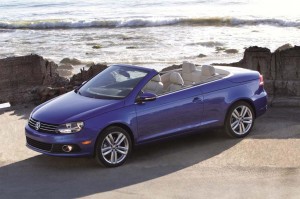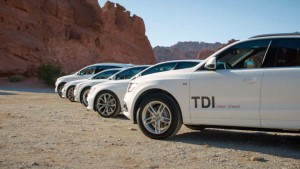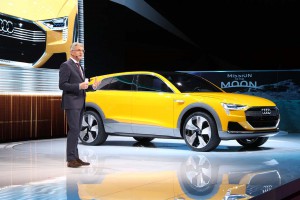Volkswagen will phase out more than 40 of its current passenger-car models over the next few years, part of a broad strategy that also will see it introduce at least 30 battery-based vehicles by 2025.
The maker confirmed it will launch a heavy push into electric vehicles last week, but has not officially confirmed the report by German newspaper Handelsblatt that it will drop around 12% of the total line-up of the Volkswagen Group.
The reported move would reflect VW’s decision to move away from the high-mileage diesels that have long propped up its line-up in favor of more advanced, battery-based technologies. That comes as no surprise to industry observers who believe the auto industry, as a whole, will have to adopt new, zero-emissions technologies to meet strict new global mileage and clean air mandates.
(All new German cars will have to be zero-emissions vehicles by 2030. Click Here for that breaking story.)
The report in Handelsblatt cites company sources who said at least 40 models will be phased out. The German automaker currently offers more than 340 models through a dozen car brands, ranging from low-end marques Skoda and Seat to top-line Audi, Bentley, Lamborghini and Bugatti.
Such a phase-out would not be entirely unexpected. If anything, there has been widespread speculation VW would drop some of its diesel models and migrate to more hybrids, plug-ins and pure battery-electric vehicles. In fact, the end total may not be all that much different if those clean offerings simply replace conventional products using gasoline and diesel engines.
But some slower selling nameplates may be dropped entirely, such as the Eos convertible.
VW is under pressure to address financial issues in the wake of the diesel scandal touched off when it admitted last September that it had cheated on emissions tests covering about 11 million vehicles. About 500,000 of them were sold in the U.S.
(VW Group upping U.S. investment wake of diesel scandal. For more, Click Here.)
The scandal took a 17 billion euro toll on VW’s bottom line last year, but many analysts believe the maker will have to write down billions more before putting the issue in its rearview mirror. Company officials have suggested it may need to sell off some assets as a result.
The scandal only compounds the financial challenges VW faces in remaining competitive as rivals roll out more clean powertrain technologies. The Mercedes brand, for example, expects to be marketing 10 different plug-in hybrids by 2017.
On top of that, activist investors have been pressing Volkswagen to revise its byzantine corporate structure and take steps to boost profits and shareholder returns.
All those factors are forcing VW to seek ways to improve its efficiencies, a goal CEO Matthias Mueller announced last week.
While the carmaker is not confirming the Handelsblatt report, a spokesperson gave a tacit nod that suggests it is, at the least, directionally correct.
“A decision on how many models will be phased out or ceased has not been taken yet,” he told the Reuter’s news service.
(All new cars sold in Germany will need by zero-emission by 2030. Click Here for that breaking story.)




I am glad the Eos is going as it, like most of VWs convertible models, are WAY TOO $$$$. It will be interesting to see their hybrid and electrical models. I wonder if they will go the initial Lexus route where their gas/electric models were promoted as having more “performance” versus mileage savings.